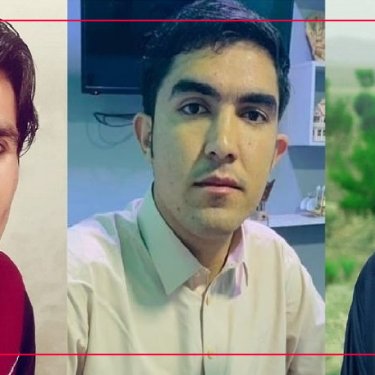Four journalists arrested, two TV channels closed in latest Taliban crackdown on Afghan media

Reporters Without Borders (RSF) calls for the release of four radio journalists and the reopening of two “critical” privately-owned TV channels that have fallen victim during the past few weeks to the latest escalation in the Taliban clampdown on media freedom in Afghanistan.
Update of 28/04/2024 : The three radio journalists working from Khost province have been released after spending six days in detention.
The latest victims include three radio journalists in Khost province who were arrested on 22 April for broadcasting music and receiving calls from female listeners during broadcasts. On 6 April, Taliban intelligence arrested a reporter in connection with his reporting in Ghazni province, seizing his phone and inspecting its contents. And on 16 April, two privately owned TV channels, Noor TV and Barya TV were closed for not respecting “national and Islamic values.”
“These punitive decisions are just the latest episodes in the unrelenting Taliban clampdown on the media. The authorities relentlessly target journalists – particularly reporters working for foreign media, who are accused of denigrating the Taliban government – and subject them to arbitrary detention and every kind of restriction. At the same time, their censorship of privately owned TV news channels aims to eliminate any reporting that is not under the government’s control. RSF calls for the immediate release of the four detained radio journalists and urges the authorities to lift the suspension of the Noor TV and Barya TV channels.
Silencing all criticism
Ismail Sadat of Radio Naz, Wahidullah Masoum of Radio Iqra and Ehsanullah Tasal of Radio Walas Ghazh were summoned for questioning by the Khost provincial department for vice and virtue on the morning of 22 April, and have been held at provincial police headquarters ever since. As well as broadcasting music, they are accused of allowing female listeners to call in and speak on the air during their programmes. Calls from women on radio and television programmes were banned in Khost on 24 February by the police chief to avoid “moral corruption.” Habib-ur-Rahman Taseer, a journalist, was arrested in Ghazni on 6 April by Taliban intelligence, who held him for 11 days and finally transferred to the Ghazni provincial prison on 17 April.
It was the information ministry’s Media Violations Commission that ordered the closure of the two TV channels. Launched in 2007 by Salahuddin Rabbani, a former foreign minister and head of the Jamiat-e-Islami party, Noor TV was closed for broadcasting music and for allowing its female employees to appear on screen without their faces covered. Barya TV, which was launched in 2019, was closed for broadcasting comments by its owner, Hezb-e-Islami party leader Gulbuddin Hekmatyar, about relations between the Taliban and the United States. These cases are to be tried before a court.
At least 25 journalists were detained in 2023 in Afghanistan, which is ranked 152nd out of 180 countries in RSF's 2023 World Press Freedom Index.
